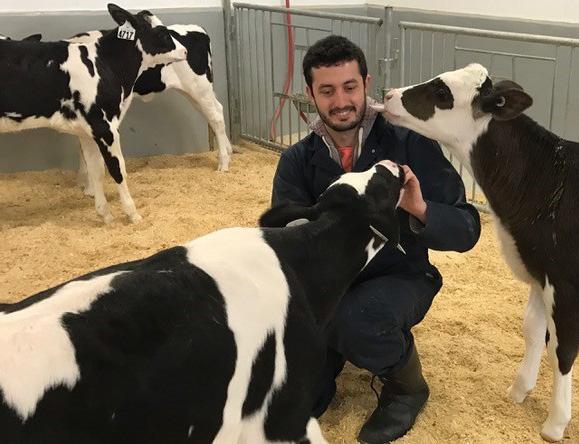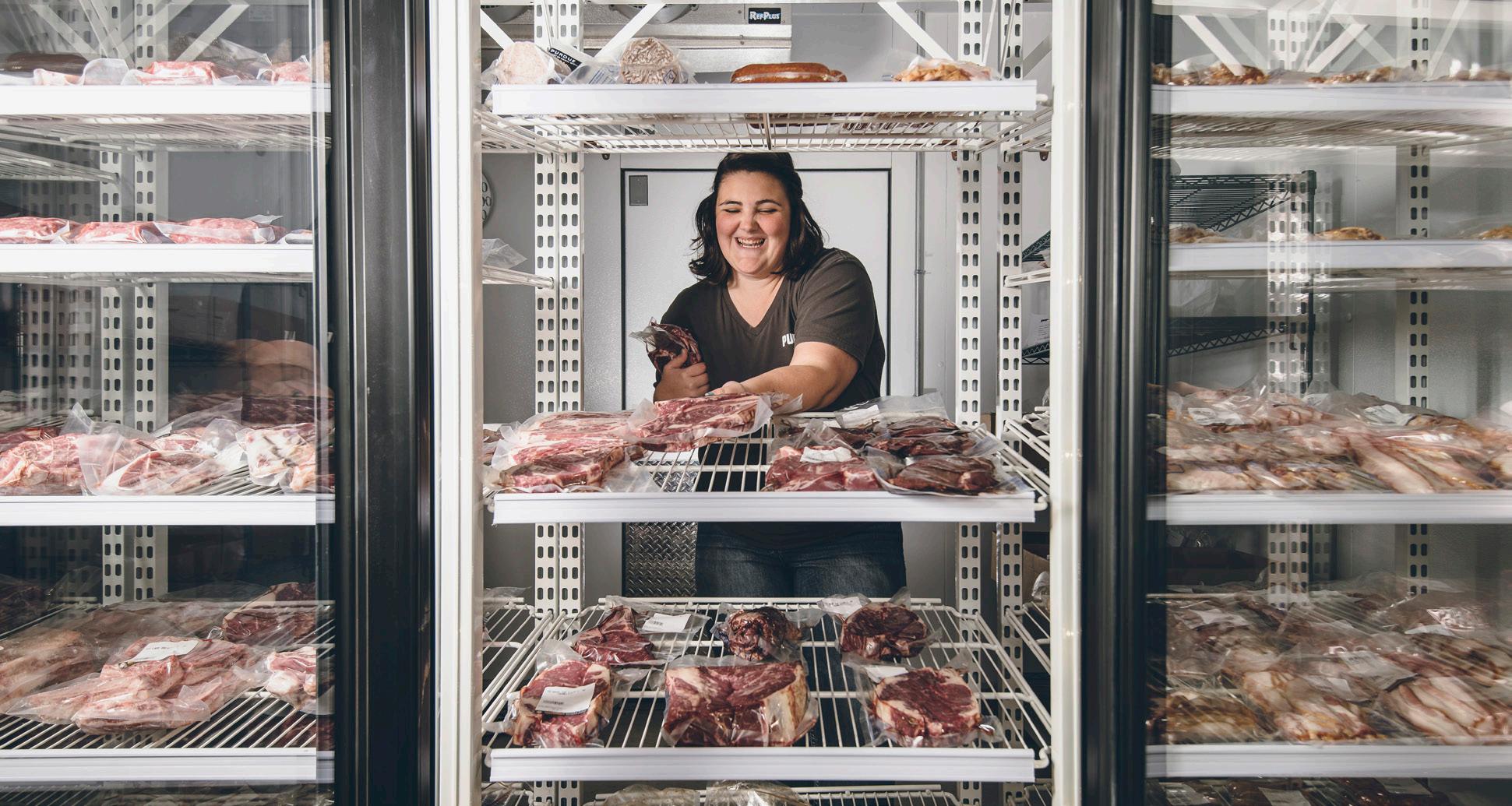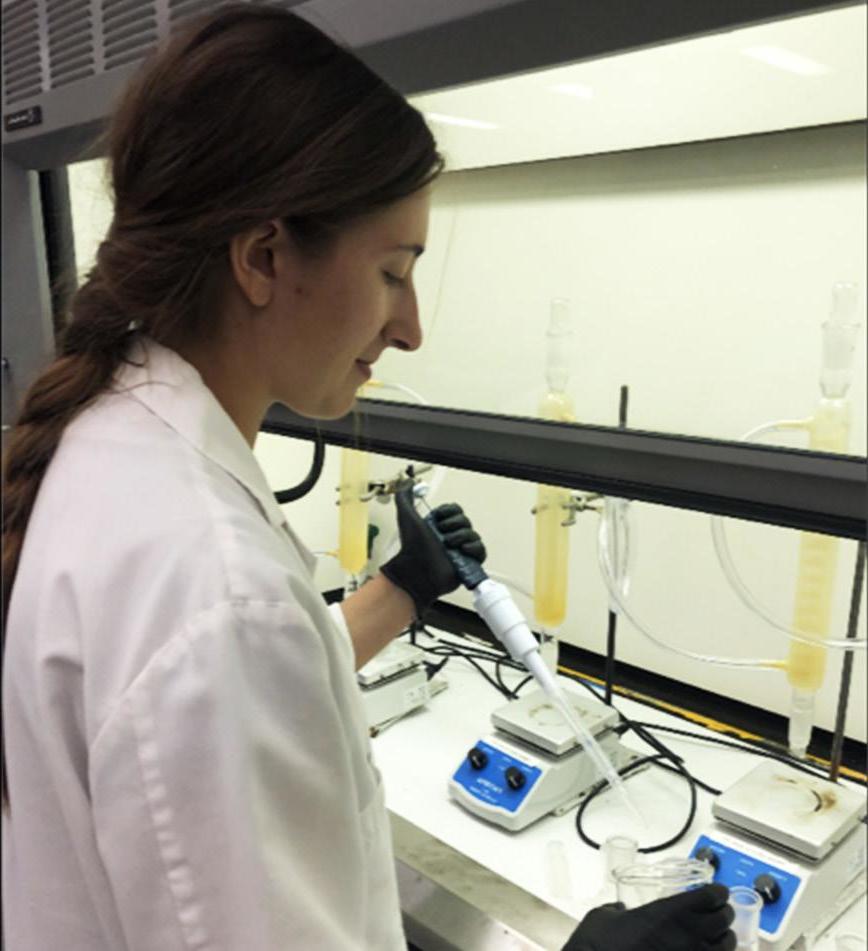FACULTYFOCUS
LUIZBRITOWORKSTOBRIDGE SCIENCEANDAPPLICATION During his PhD program at the University of
14
PURDUEUNIVERSITY
LUIZ
Guelph (Canada), Luiz Brito spent a year in New Zealand developing genetic tools to improve meat quality in sheep. Last summer, Brito, who joined the animal sciences faculty at Purdue in August 2018 as assistant professor of quantitative genetics and genomics, attended an international conference where sheep breeding companies showed the substantial genetic progress they had achieved in a short time using the methods that he helped to develop. The researcher was thrilled to see his work bridging science and application. “We are working for the foodproducing sector,” he says. “One of the ways to feed a growing population is to improve the productive efficiency of our animals. We are developing research that will have applicability to farmers and enable them to produce better quality food in the face of climate change conditions, with exemplary welfare for animals and lower prices for consumers.” Toward these objectives, Brito’s lab at Purdue uses quantitative genetics, genomics and systems biology to genetically improve livestock species. “Our primary goal is to enhance animal welfare and behavior and adaptation to challenging environments by integrating their genomic information combined with largescale phenotyping,” he explains. (Phenotype refers to physical traits influenced by both genetic code and
environmental factors.) By understanding the genetic basis underlying the phenotypic variability in such traits as response to heat stress, temperament, food allergy response and certain diseases, he can help producers breed more resilient animals. Animals that are less stressed live longer, produce more or grow faster, and have fewer health problems, Brito notes. His work focuses primarily on beef cattle, dairy cattle and swine. But another component of his research involves improving the performance of the so-called minor species in smallholder production systems and developing countries — “minor” not for their importance but because they are less studied, he notes. Such animals include sheep and goats, ducks, alpacas and buffalo. Brito became interested in genetics while growing up on a livestock breeding farm in Brazil. He recalls being fascinated by the idea of crossing guineafowls and being able to predict the color of the progeny. As a university student, “I learned that with genetics we can make progress that’s permanent and cumulative over generations, which is very rewarding,” he says. Brito received a 2020 seed grant from AgSEED (Agricultural Science and Extension for Economic Development), the college’s competitive internal grant program. He, ANSC dairy specialist Jackie Boerman, and their USDA collaborators are using data from one of the world’s largest precision dairy farms, in Plymouth, Indiana, to envision a “precision genomic index” that could assess animal welfare, behavior, health and productive efficiency, as well as to genetically identify and breed cows that are more suitable to precision dairy farming conditions. AgSEED funding “provides us with the opportunity to give back to the Indiana community by doing research directly applicable to Indiana dairy producers,” he says. “It enables researchers to try projects in cutting-edge areas. “We can look if there is potential and collect data so we can apply for larger, federal grants.” The first-time faculty member says the department provides the infrastructure and support he needs to be successful. From his lab, he’s keeping his eye on applicability and outreach. “I want to show the producers and general public that genetics and genomics aren’t scary,” he adds. “We’re just selecting the best mating animals for the best outcomes. That will have major applications for livestock producers and for the community as a whole.”







